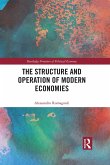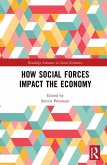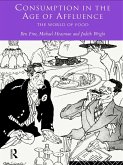At the centre of the analysis there is the economic system, characterised by organisational components carrying out economic functions (production, consumption, distribution, and establishment and control of the economic activities as well as provision of public goods and services) and by a co-evolving dynamic with the state. The economic system is thus a 'machine' that modern states have organised through their laws and international agreements. The book incorporates a historical approach which reveals the varieties, structure and evolution of capitalism as the defining economic system of the modern age. Ultimately, the book demonstrates that the economic sphere and the political sphere are the two powers ruling people's lives: the economy is the result of their interactions.
This book will be of great interest to readers in political economy, economics, sociology and political science.
Dieser Download kann aus rechtlichen Gründen nur mit Rechnungsadresse in A, B, BG, CY, CZ, D, DK, EW, E, FIN, F, GR, HR, H, IRL, I, LT, L, LR, M, NL, PL, P, R, S, SLO, SK ausgeliefert werden.
Zoltan Pogatsa University of West Hungary









